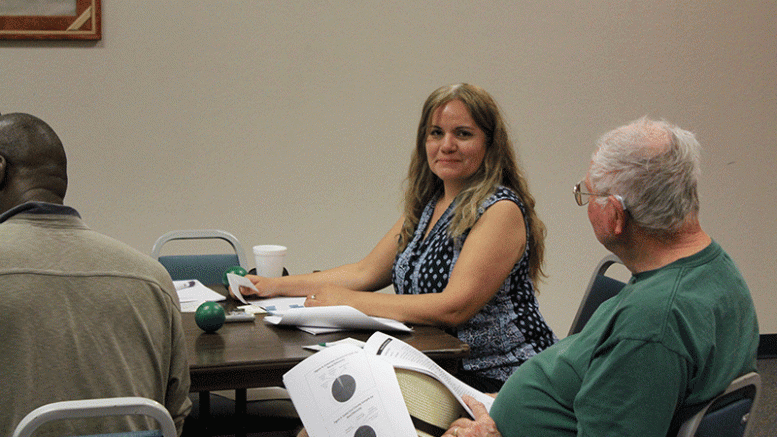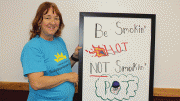By Brooke Curley
brooke@gilavalleycentral.net
SAFFORD –Graham county seniors were asked about their current lifestyle in a recent poll, and the results might surprise you.
The Southeastern Arizona Governments Organization (SEAGO) presented its assessment of the local senior quality of life at a meeting in Safford on Wednesday. SEAGO is a nonprofit organization that communicates between government entities and local communities and helps manage government funding. A SEAGO executive summary was presented to the public, which consisted of multiple area survey summaries of Graham County as well as several surrounding counties. Conducted by the U.S. Economic Research and SEAGO, the survey was taken by a total of 689 seniors ages 60 and older residing in Cochise, Graham, Greenlee and Santa Cruz counties.
According to the survey, the thing that local Graham County seniors saw as the most serious problem in the community was the lack of dental care. Dental care was rated a serious problem by 37.5 percent of the survey respondents as the number one most serious problem for multiple counties.
The changes from 2013 to 2016 in Graham County were relatively drastic. When the survey was conducted in 2013, adequate employment opportunities ranked as the most serious problem for local seniors. Now, affordable dental care has taken its place. Recreational and social activities were moved from the third serious problem and was replaced by yard maintenance.
Royce Hunt, program manager for Southeastern Arizona Community Unique Services (SEACUS), said she was somewhat surprised by SEAGO’s findings. Although Hunt knew dental care was a major concern for local seniors, she would have suspected that the need for transportation would be dire as well.
“Medicare doesn’t cover dental,” Hunt said. “For us specifically, we need to be mindful because of what we cook in our kitchens because it will affect nutrition. If you don’t have teeth, you don’t eat the stuff that’s good for you. It’s harder to eat what’s good for you.”
Transportation was ranked number 15 in “some problem” or “serious problem,” by Graham County poll participants. The second highest-ranked problem locally was affordable active devices, such as hearing aids, glasses and canes.
“I was just surprised that it wasn’t ranked higher on the list because there isn’t any public transportation here,” Hunt said. “There are a lot of people driving (who) shouldn’t be driving, but they won’t give up their keys because that makes them fully dependent on another person. And that’s really hard for a lot of people. It’s an issue about driving, but it really isn’t about driving, it’s about maintaining their independence and freedom.”
Amid the swirling rumors of government budget cuts, Hunt, who is one of the individuals running Meals-on-Wheels for the local elderly community, said she and her organization are anxiously waiting to see what will unfurl.
“There hasn’t been any official announcements,” she said. “We’ve been holding our breath. Those federal dollars make up roughly 50 percent of our budget for meals. If we were to lose all of those dollars, we wouldn’t be able to continue providing services. That’s half of our budget.”
Although Hunt told Gila Valley Central that there has been no official word there will be government budget cuts made to the volunteer-driven Meals-on-Wheels program, she encouraged individuals in the community to speak out. However, if anyone wishes to volunteer, Hunt said she is always looking for drivers.
“The most important thing that people can do is to call their representatives and legislators,” Hunt said. “We need volunteer drivers; we are short drivers right now.”
Hunt stressed that volunteers don’t have to drive every single day. Volunteer drivers are invited to drive whenever they can, be it once a week or two days a week. However, anyone wishing to be a Meals-on-Wheels volunteer driver must be aware that they have to pass a Level One fingerprint scan and background check. SEACUS, however, will pay for the fingerprint card. Volunteers will be reimbursed for their mileage.
Anyone interested in volunteering for Meals-on-Wheels should contact SEACUS at (928)-428-3229.













.jpg)